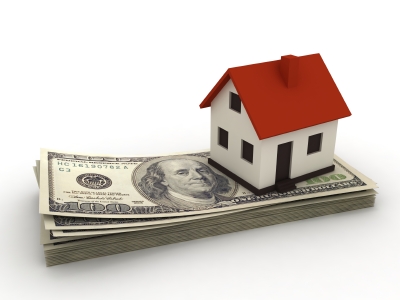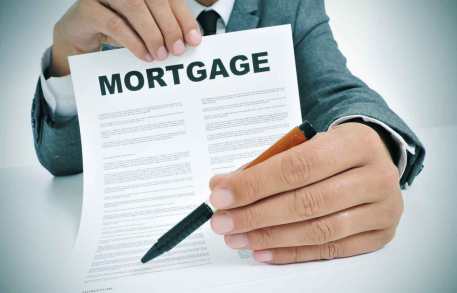What sort of information does one need when considering a mortgage? Where can they find the best, most accurate, expert advice? This article has it all for you, from tips to help you engage in the process to tricks to help you get more out of your mortgage, so read on.
 If a 20% down payment is out of your league, do some shopping around. Different banks will have different offers for you to consider. Terms and rates will vary at each, some will give a lower downpayment, but a slightly higher interest rate. Look for the best mix for your current situation.
If a 20% down payment is out of your league, do some shopping around. Different banks will have different offers for you to consider. Terms and rates will vary at each, some will give a lower downpayment, but a slightly higher interest rate. Look for the best mix for your current situation.
Knowing your credit score is important before trying to obtain a mortgage. The better your credit history and score, the easier it will be for you to get a mortgage. Examine your credit reports for any errors that might be unnecessarily lowering your score. In reality, to obtain a mortgage, your credit score should be 620 or higher.
Watch out for banks offering a “no cost” mortgage loan. There is really no such thing as “no cost”. The closing costs with “no cost” mortgages is rolled into the mortgage loan instead of being due upfront. This means that you will be paying interest on the closing costs.
Try to have a down payment of at least 20 percent of the sales price. In addition to lowering your interest rate, you will also avoid pmi or private mortgage insurance premiums. This insurance protects the lender should you default on the loan. Premiums are added to your monthly payment.
Try to refinance again if your home is currently worth less money than you owe. A program known as HARP has been modified, allowing a greater number of homeowners to refinance. Ask your lender if they are able to consider a refinance through HARP. If the lender is making things hard, look for another one.
Avoid spending lots of money before closing on the mortgage. Credit is often rechecked near the final approval, and if you’re spending too much, you may be denied. Make large purchases after the mortgage is signed and final.
Try shopping around for a home mortgage. When you do shop around, you need to do more than just compare interest rates. While they’re important, you need to consider closing costs, points and the different types of loans. Try getting estimates from a few banks and mortgage brokers before deciding the best combination for your situation.
Determine your terms before you apply for your mortgage, not only to demonstrate to the lender you are responsible, but also to maintain a reasonable monthly budget. This means that you have to put a limit in place for your monthly payments, on the basis of your current budget, not just the house you desire. Regardless of how great it is to live in a new home, you’re going to hate it if you wind up not being able to afford it.
If your mortgage has been approved, avoid any moves that may change your credit rating. Your lender may run a second credit check before the closing and any suspicious activity may affect your interest rate. Don’t close credit card accounts or take out any additional loans. Pay every bill on time.
If you plan to buy a home, find out about its historical property tax information. You should know how much the property taxes will cost. If the tax assessor puts a higher value on your property than you know of, you will have a surprise coming.
 Find out if the loan you are applying for is a fixed rate or adjustable rate loan. Generally adjustable rate loans offer lower interest rates; however, the interest rate can increase over time. With an adjustable rate loan, your interest rate can increase yearly; thus costing you more money in the long run.
Find out if the loan you are applying for is a fixed rate or adjustable rate loan. Generally adjustable rate loans offer lower interest rates; however, the interest rate can increase over time. With an adjustable rate loan, your interest rate can increase yearly; thus costing you more money in the long run.
If your mortgage has you struggling, seek assistance. Consider seeking out mortgage counseling. HUD will provide counseling anywhere across the nation. Free counseling is available with HUD approved counselors. Call HUD or look online for their office locations.
Pay your credit cards on time if you are considering a home mortgage in the next few years. Your credit score and debt to income ratios will come into play when you go for a home mortgage. If you have multiple late payments or are carrying a lot of debt, you may find the mortgage offers you receive to be poor.
Many computers have built in programs that will calculate payments and interest for a loan. Use the program to determine how much total interest your mortgage rate will cost, and also compare the cost for loans with different terms. You may choose a shorter term loan when you realize how much interest you could save.
With all of these tips and tricks, you are becoming a master of the mortgage game. The only way you can benefit from the time you took to read this article is by using these tips to get a great mortgage. Go out today and find a lender and make the deal complete!
 Most people will require a mortgage to purchase a home, meaning that you will have to shop for a loan and then proceed to shop for a home. However, the survey carried out by the United States Consumer Financial Protection Bureau established that approximately half of borrowers do not research or shop around prior to resolving to take a Mortgage. The following mortgage tips will help you to secure an ideal mortgage deal.
Most people will require a mortgage to purchase a home, meaning that you will have to shop for a loan and then proceed to shop for a home. However, the survey carried out by the United States Consumer Financial Protection Bureau established that approximately half of borrowers do not research or shop around prior to resolving to take a Mortgage. The following mortgage tips will help you to secure an ideal mortgage deal. Request for a mortgage preapproval
Request for a mortgage preapproval If a 20% down payment is out of your league, do some shopping around. Different banks will have different offers for you to consider. Terms and rates will vary at each, some will give a lower downpayment, but a slightly higher interest rate. Look for the best mix for your current situation.
If a 20% down payment is out of your league, do some shopping around. Different banks will have different offers for you to consider. Terms and rates will vary at each, some will give a lower downpayment, but a slightly higher interest rate. Look for the best mix for your current situation. Find out if the loan you are applying for is a fixed rate or adjustable rate loan. Generally adjustable rate loans offer lower interest rates; however, the interest rate can increase over time. With an adjustable rate loan, your interest rate can increase yearly; thus costing you more money in the long run.
Find out if the loan you are applying for is a fixed rate or adjustable rate loan. Generally adjustable rate loans offer lower interest rates; however, the interest rate can increase over time. With an adjustable rate loan, your interest rate can increase yearly; thus costing you more money in the long run. Begin getting ready for a home mortgage well in advance of your application. If you’re thinking about purchasing a home, then you have to get your finances in order quickly. That will include reducing your debt and saving up. If you put these things off too long, you could face a denial letter.
Begin getting ready for a home mortgage well in advance of your application. If you’re thinking about purchasing a home, then you have to get your finances in order quickly. That will include reducing your debt and saving up. If you put these things off too long, you could face a denial letter. If you are thinking abut changing jobs, try to wait until after your loan approval process is over. This is because the underwriter will have to go through the employment verification process all over again. They will also require you to submit paycheck information, which means that you would have to put the loan off until after you are paid a few times.
If you are thinking abut changing jobs, try to wait until after your loan approval process is over. This is because the underwriter will have to go through the employment verification process all over again. They will also require you to submit paycheck information, which means that you would have to put the loan off until after you are paid a few times.